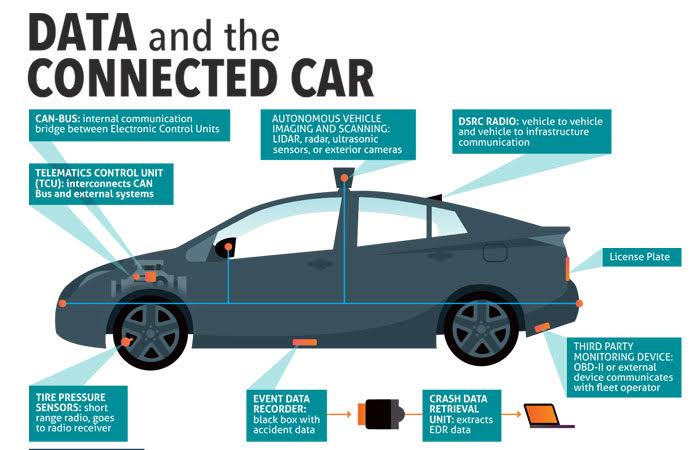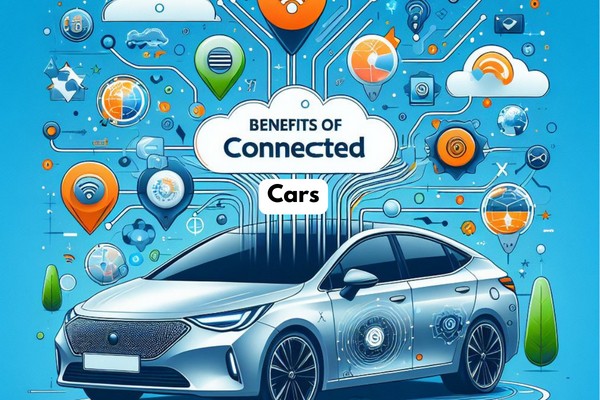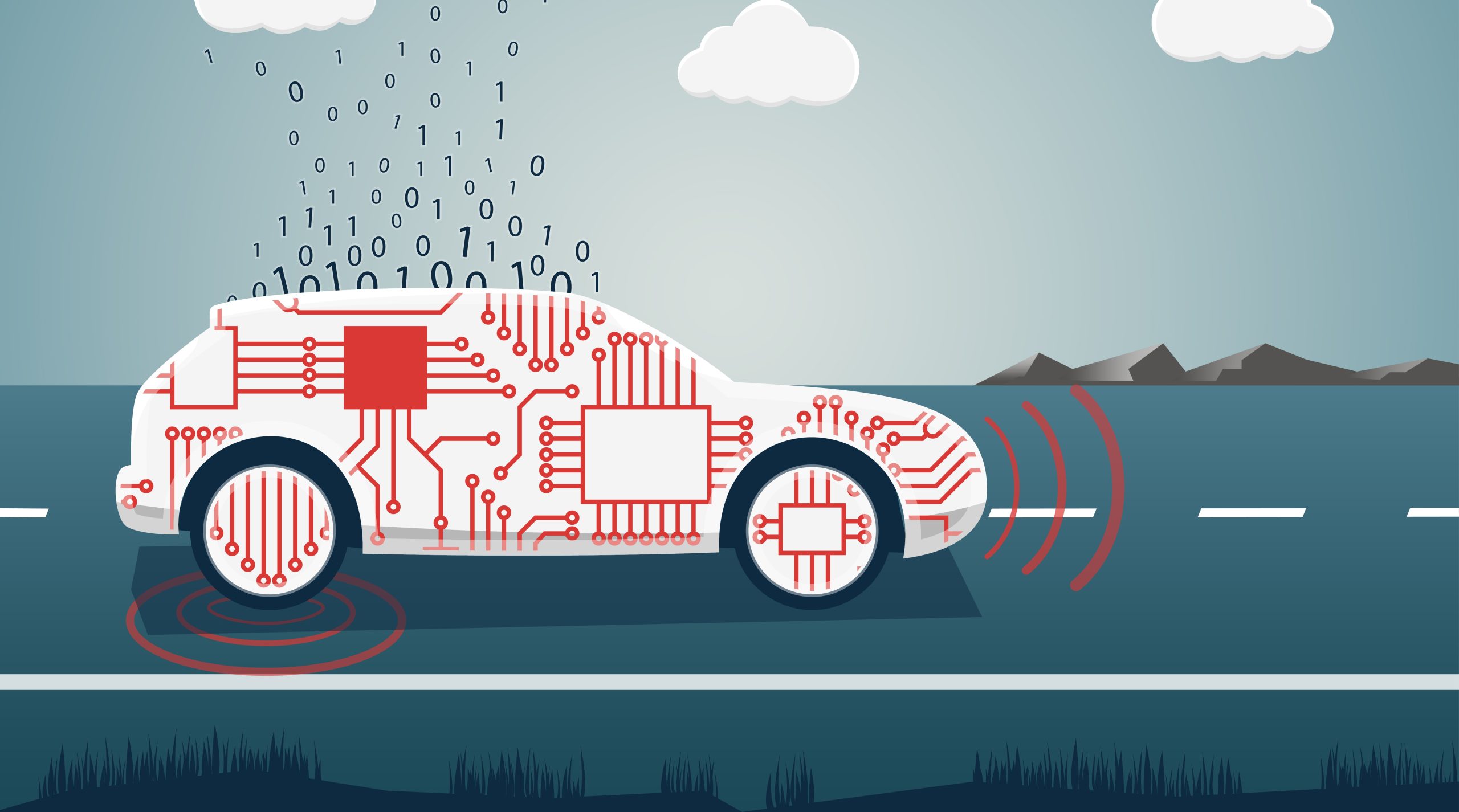Connected cars, equipped with advanced sensors, GPS, and internet connectivity, are transforming the driving experience by offering features such as real-time traffic updates, remote diagnostics, and enhanced safety systems. However, these technological advancements also raise significant concerns about data privacy. As connected cars collect vast amounts of data on driving behavior, location, and vehicle performance, questions arise about who owns this data and how it is being used.
Automakers, technology companies, and service providers argue that access to driving data is essential for improving vehicle performance, enhancing safety features, and providing personalized services to consumers.
They contend that data collection helps to identify and address potential issues before they become critical, ensuring a safer and more efficient driving experience. Additionally, aggregated data can be used to improve traffic management and urban planning.

Conversely, privacy advocates express concerns about the potential misuse of driving data, including unauthorized access, surveillance, and data breaches. They argue that consumers should have greater control over their personal information and the ability to consent to data collection and usage. The debate over data ownership in connected cars is complex and multifaceted, involving legal, ethical, and technological considerations.
In this article, we will explore both sides of the debate. First, we will examine the benefits of data collection in connected cars and the arguments for automakers’ access to this information. Then, we will consider the privacy concerns and the case for consumer control over driving data. Through this balanced analysis, we aim to provide a comprehensive understanding of the data privacy issues surrounding connected cars.
Benefits of Data Collection in Connected Cars
The data collected by connected cars offers several benefits, primarily related to enhancing vehicle performance, safety, and the driving experience. One of the most significant advantages is the ability to perform remote diagnostics and predictive maintenance. Connected cars can continuously monitor various vehicle systems, identifying potential issues before they become critical. For example, sensors can detect early signs of engine problems, brake wear, or battery health, allowing for timely maintenance and repairs. This proactive approach helps to prevent breakdowns, reduce repair costs, and extend the lifespan of the vehicle.
Additionally, data collection contributes to improved safety features. Connected cars can gather and analyze real-time data on driving behavior, road conditions, and traffic patterns. This information can be used to develop advanced driver-assistance systems (ADAS) that enhance safety by providing features such as lane-keeping assist, adaptive cruise control, and automatic emergency braking. By leveraging data analytics, automakers can identify common accident scenarios and develop technologies to mitigate risks, ultimately reducing the likelihood of collisions and enhancing road safety.
Personalization is another benefit of data collection in connected cars. By understanding individual driving habits and preferences, automakers and service providers can offer customized services and recommendations. For instance, navigation systems can suggest the most efficient routes based on a driver’s past behavior and real-time traffic data. Additionally, personalized settings for climate control, seat position, and infotainment preferences can enhance comfort and convenience for drivers and passengers.

Data collection also plays a crucial role in traffic management and urban planning. Aggregated and anonymized data from connected cars can provide valuable insights into traffic flow, congestion patterns, and road usage. City planners and traffic authorities can use this information to optimize traffic signals, plan infrastructure improvements, and implement effective traffic management strategies. As a result, data-driven urban planning can lead to reduced traffic congestion, shorter travel times, and lower emissions, contributing to a more sustainable and efficient transportation system.
Moreover, connected cars facilitate the development of new business models and services. Automakers, technology companies, and third-party service providers can leverage driving data to offer a range of services, from usage-based insurance to in-car commerce and entertainment. These innovations create new revenue streams and enhance the value proposition for consumers.
The data collected by connected cars provides significant benefits, including enhanced vehicle performance, improved safety features, personalized services, and valuable insights for traffic management and urban planning. By harnessing the power of data, connected cars can deliver a safer, more efficient, and more enjoyable driving experience.
Privacy Concerns and the Case for Consumer Control
While the benefits of data collection in connected cars are compelling, they come with significant privacy concerns. One of the primary issues is the potential for unauthorized access and misuse of personal data. Connected cars collect vast amounts of information, including location data, driving behavior, and vehicle diagnostics. If this data falls into the wrong hands, it could be used for malicious purposes such as stalking, identity theft, or unauthorized surveillance. The risk of data breaches and cyberattacks is a serious concern, particularly as connected cars become more prevalent and sophisticated.
Another major concern is the lack of transparency and control over data collection and usage. Many consumers are unaware of the extent to which their driving data is being collected and how it is being used. Without clear and informed consent, consumers may feel that their privacy is being violated. Privacy advocates argue that consumers should have the right to know what data is being collected, how it is being used, and who has access to it. They should also have the ability to opt-out of data collection if they choose.
The issue of data ownership is also contentious. Automakers and technology companies often claim ownership of the data collected by connected cars, arguing that it is essential for improving vehicle performance and developing new services. However, privacy advocates contend that consumers should own their driving data and have control over how it is used. They argue that data generated by an individual’s driving behavior should be considered personal property, and consumers should have the right to control its access and usage.

Moreover, there are ethical considerations related to data privacy in connected cars. The potential for constant monitoring and surveillance raises concerns about individual autonomy and freedom. If driving data is used to track an individual’s movements and behavior, it could have a chilling effect on personal freedom and privacy. Ensuring that data collection practices respect individual privacy rights and ethical principles is crucial for maintaining public trust in connected car technologies.
To address these privacy concerns, several measures can be implemented. First, automakers and technology companies should adopt robust data protection practices, including encryption, secure storage, and regular security audits. These measures can help prevent unauthorized access and data breaches. Second, clear and transparent privacy policies should be established, providing consumers with detailed information about data collection and usage. Consumers should be able to give informed consent and have the option to opt out of data collection if they choose.
Additionally, regulatory frameworks should be developed to protect consumer privacy in the context of connected cars. Governments and regulatory bodies can establish guidelines and standards for data protection, ensuring that automakers and technology companies adhere to best practices. These frameworks can also define the rights of consumers regarding data ownership and control, providing a legal basis for protecting individual privacy.
While data collection in connected cars offers significant benefits, it also raises important privacy concerns. Ensuring that consumers have control over their driving data and that robust data protection practices are in place is essential for addressing these concerns. By balancing the benefits of data collection with the need to protect consumer privacy, connected car technologies can deliver a safer and more enjoyable driving experience while respecting individual rights and autonomy.

